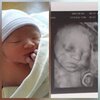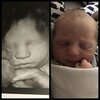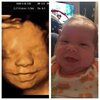Pregnancy is a time of great excitement and anticipation, but it also comes with a lot of responsibility. As an expectant mother, you want to do everything you can to ensure the health and wellbeing of your developing baby. One of the best ways to do this is by taking a prenatal vitamin during pregnancy.
Prenatal vitamins are specially formulated supplements that contain a combination of vitamins and minerals that are essential for fetal development. These nutrients help support your baby's growth and development, as well as your own health during pregnancy.
Here are some reasons why taking a prenatal vitamin is so important during pregnancy:
Folate/Folic acid: Folate is a B vitamin that is essential for the healthy development of your baby's neural tube, which becomes the brain and spinal cord. Taking a prenatal vitamin that contains folic acid can help reduce the risk of neural tube defects, such as spina bifida.
Iron: Iron is important for the production of red blood cells, which carry oxygen to your baby and to your own body. During pregnancy, your blood volume increases, so you need more iron than usual. Iron deficiency during pregnancy can lead to anemia, which can cause fatigue and increase the risk of preterm delivery.
Calcium: Calcium is important for the development of strong bones and teeth in your baby. If you don't get enough calcium in your diet, your baby will take it from your bones, which can lead to osteoporosis later in life.
Vitamin D: Vitamin D is important for bone health, and it also helps your body absorb calcium. It's difficult to get enough vitamin D from food alone, so taking a prenatal vitamin that contains vitamin D can help ensure that you and your baby get enough.
Omega-3 fatty acids: Omega-3 fatty acids are important for brain and eye development in your baby. They can also help reduce the risk of preterm birth and low birth weight. Some prenatal vitamins contain omega-3 fatty acids, or you can take a separate supplement.
In addition to these key nutrients, prenatal vitamins often contain other vitamins and minerals, such as vitamin C, vitamin E, and zinc, which can help support your immune system and overall health during pregnancy.
While it's important to get as many nutrients as possible from a healthy diet, taking a prenatal vitamin can help fill in any gaps and ensure that you and your baby are getting everything you need. Talk to your healthcare provider about which prenatal vitamin is right for you and make sure to take it as directed throughout your pregnancy.




















